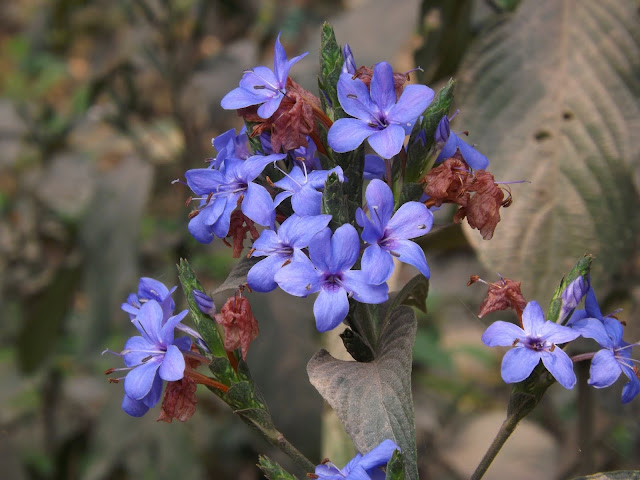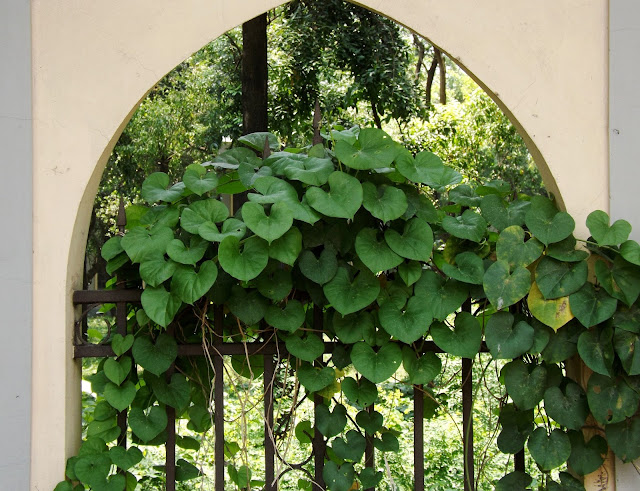Kalobashok or Blue sage, Eranthemum pulchellum
Kalobashok or Blue sage (Eranthemum pulchellum, family: Acanthaceae) is a woody shrub with thick branches, with a height of 1-1.5 m. Stem and branches are quadrangular. The color of the flowers is stunning blue. The astonishing abundance of gentian blue has the power to amaze anyone. It can be one of the top picks for decoration of tropical gardens. It is mainly found in Indian subcontinent as well as some countries of Southeast Asia.
Other names: Muralipata (Bang), Blue eranthemum (Eng).
Leaves are deep green, opposite, Midrib and veins are clearly visible. Sometimes veins are from same point, which is rare characteristic in plant world, ovate-elliptic, 10-15 cm long, tip pointed, edge dented, sometimes undulated. Petals 5. Propagation of the plant is caused by cuttings.
Tubular flowers are light blue, showy, tube 2.5 cm long, lobes 5. Cup-like sepal is 5-lobed. Flowers bloom at the top of long terminal inflorescence (8-16 cm) with bracts. The overlapping bracts are basically green but has a white tinge.
Flowers are persistent. These remain dry and brown on the plant for a long time. It blooms from the end of winter to spring. Fruit is capsule, tiny; 4-seeded. It is a very difficult task to grow seedlings from the seeds.
Leaves are used in whooping cough, plethora and menstrual disorder.
Synonyms: Eranthemum nervosum, Justicia nervosa





62E0B810A7
ReplyDeletemmorpg oyunlar
sms onay
türk telekom mobil ödeme bozdurma
güvenilir takipçi satın alma
ig takipçi